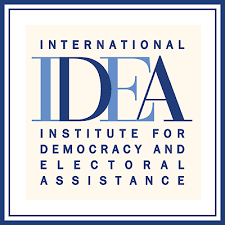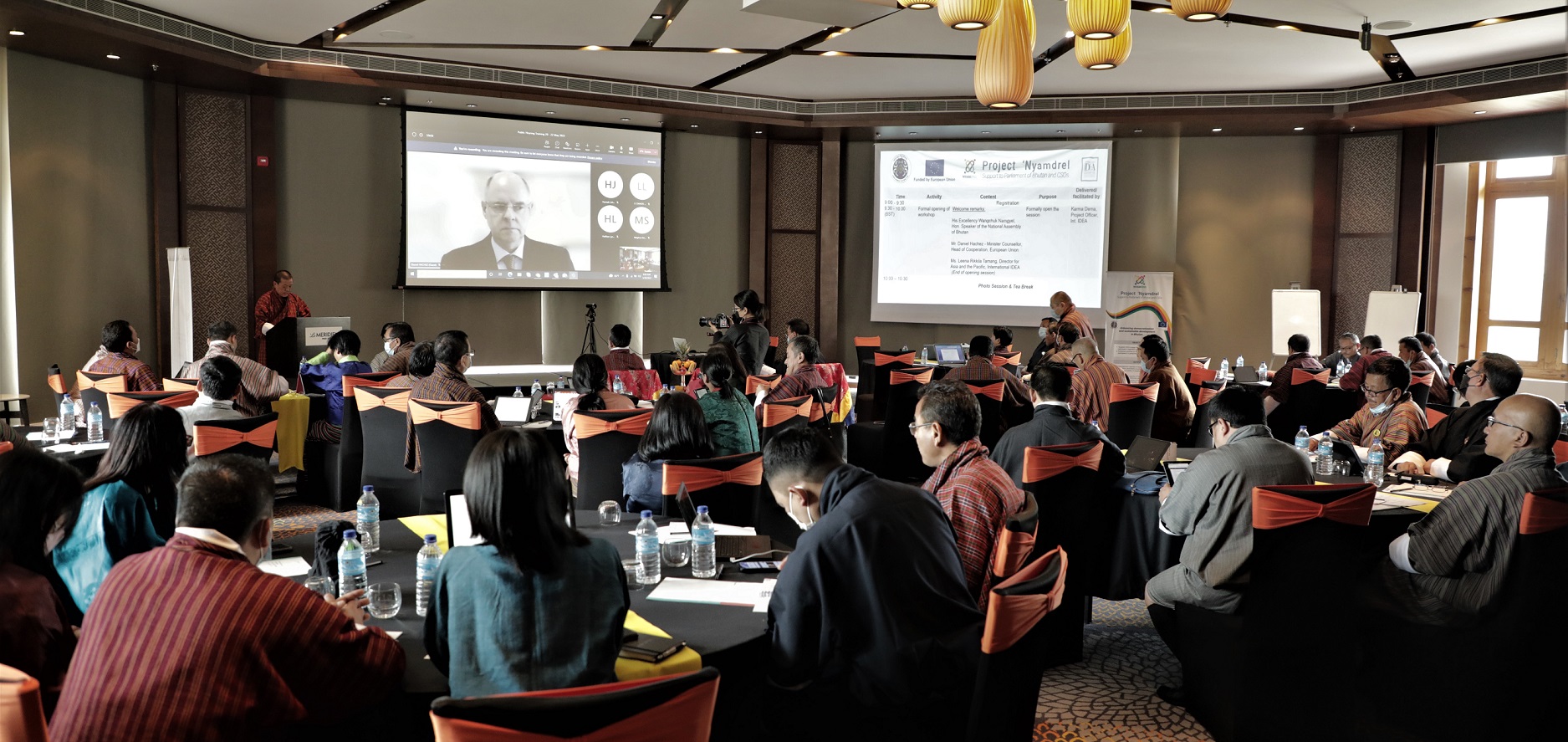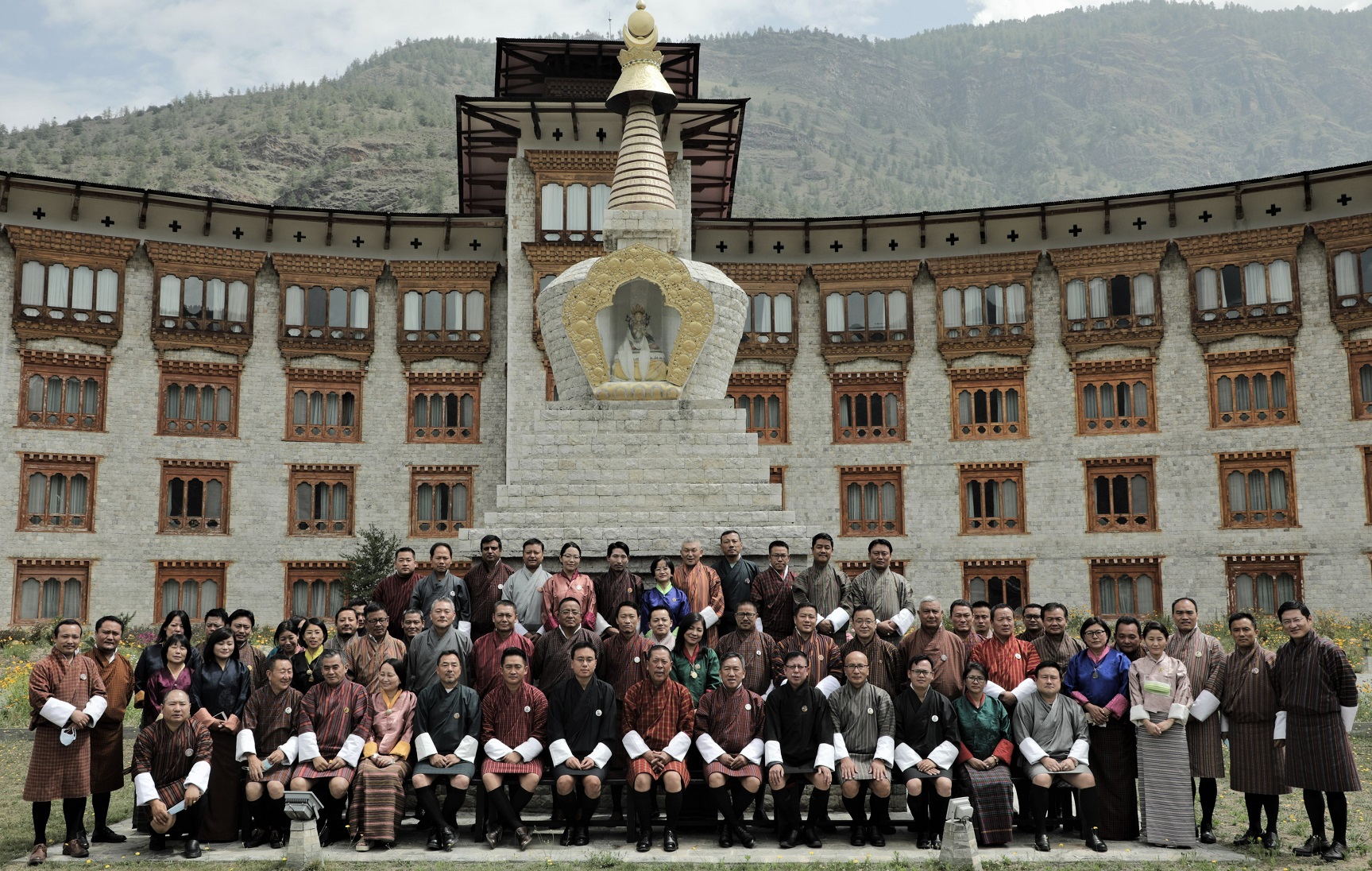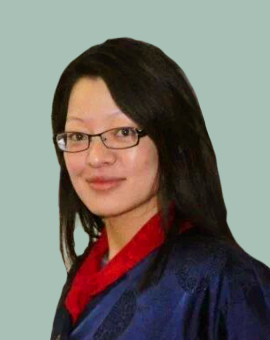
PUBLISHED:
The participants were excited with their learning outcomes. Speaking during the workshop, a parliamentary member said that it became clear that public hearings are more than just an information-gathering mechanism used by the parliamentary committees, and in fact are also a means of gaining better understanding of policies and legislations, educating the public, and conducting effective oversight and scrutiny of parliamentary and governance processes.
The workshop was led by two international experts in a hybrid mode. Halfdan Lynge, a Senior Lecturer at the University of the Witwatersrand (South Africa) and Hannah Johnson, a senior gender adviser to the EU-funded INTER PARES and a researcher at Welsh Parliament, attended virtually. Sangay Khandu, a former Bhutanese parliamentarian facilitated in the training, in person. Over the course of the workshop, they emphasized that public hearings are an entry point for citizens to engage in parliamentary affairs, thereby increasing transparency of governmental operations and building trust in governance institutions and processes.
The resource persons gave programmatic advice on how to invite interested parties to hearings or to give evidence. They also demonstrated practical methods of listening to the opinions of those who are either positively or negatively affected by a legislative or policy outcome. They said that in public hearings parliamentarians would have to put themselves in 'listening mode' rather than “broadcast mode”.
During the opening session, the Honorable Speaker of the Parliament of Bhutan emphasised the need to “conduct regular public hearings as part of a legislative and oversight work”. He affirmed that the Bhutanese Parliament would strive to become an “exemplary parliament with institutionalized ties with citizens” through such mechanisms. He further stated that “such kinds of trainings and workshops will help the members to effectively coordinate, plan and prepare the conduct of public hearings towards fulfilling the constitutional mandates of the parliament.”
Daniel Hachez, Head of Cooperation, EU delegation expressed his appreciation to the Parliament of Bhutan for the overwhelming participation in the three-day training programme. He stated that the trust that Bhutanese people in their leadership is strong. This has been further reinforced by fast and efficient response to the Covid-19 pandemic. This trust, he mentioned “will further be cemented by improved analyses, stronger policies and robust decision making which is what this three-day workshop aims to contribute to”.
Leena Rikkilä Tamang, Regional Director of International IDEA’s Asia and Pacific Region, shared her experiences and told participants that “an effective public hearing process brings the parliament closer to the people.” She also highlighted that unlike most democratic states, public hearing is explicitly mentioned in the written constitution and rules of procedures of both national assembly and national council.
The workshop was organized based on an advance needs assessment. The National Assembly of Bhutan had conducted only one public hearing since the establishment of the parliamentary process in 2008. The needs assessment revealed that 75 per cent of the participants had not participated in any public hearings or public hearings trainings. Several barriers were identified in holding public hearings: institutional barriers, financial constraints, human resources constraints relating to lack of knowledge, awareness and confidence. Practice, through conducting public hearings, will help to build the confidence of MPs and parliamentary staff, institutionalize procedures and gradually, over time, change the norms and cultures surrounding public hearings. Many agreed that the pandemic accelerated the digital transformation of parliaments and the uptake of digital tools to effectively engage with the broader community. This is expected to address some of the resource constraints.

The interactive workshop was conducted with group exercises, role plays, case studies and sharing of best practices by a representative from the Danish Parliament. The workshop ended on an energetic note as participants found the training to be highly engaging, stimulating, and increased their knowledge of how to organise a public hearing.
Participants said that through this workshop, they gained the confidence to run public hearings and even be able to identify suitable topics for public hearings. They are hoping to immediately put their newfound skills, awareness, and confidence to engage more effectively with the public to use.

The public hearing workshop received enthusiastic reception with 66 participants including the Honourable Speaker, Honourable Chairperson, Opposition Leader and other Parliamentary Members. It also saw participation of the parliamentary committee secretaries and staffs of both houses of the parliament. Daniel Hachez, Head of Cooperation of EU delegation and other distinguished representatives from the EU attended the opening session. The training was fully funded by the EU under “Project ‘Nyamdrel | Support to Parliament of Bhutan and CSOs”, which is jointly implemented by International IDEA and Helvetas Bhutan.











Add new comment